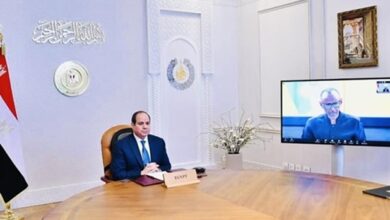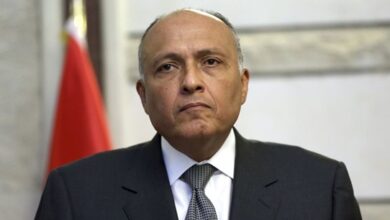After a short vacation last week spent blissfully disconnected from the internet, I logged on again this week to find a series of dumbfounding news from around the world.
Barack Obama was hosting Israeli-Palestinian peace talks that no one believes in, and wrote Yasser Arafat out of history when mentioning the achievements of previous peacemakers (Sadat, Begin, Rabin, King Hussein)–though it was Arafat who first accepted the idea of a two-state solution. Also in the US, Mitchell Bard, a scholar known for his connections to the pro-Israel lobby, published a book called The Arab Lobby in which he claims Arab power in American politics far eclipses that of Israel and its American supporters. In Palestine, chief Palestinian negotiator Saeb Erakat made this astoundingly offensive statement in a TV appeal to Israelis: “Shalom to you in Israel. I know we have disappointed you. I know that we have been unable to deliver peace for the last 19 years.” As if the Palestinians bear the brunt of the blame for the failure of past negotiations.
All these cases leave one feeling that c’est le monde à l’envers–the world has turned upside down. But nothing surprised me more than the relatively unimportant news that Saad Eddin Ibrahim has signed a petition supporting Gamal Mubarak's candidacy for the Egyptian presidency. This bewildered me and many others who followed Ibrahim during his ongoing ordeal with the Egyptian regime.
It’s not just that Ibrahim is a well-known dissident, though he is more popular abroad than at home. It’s that his arrest and trial on charges of illegally receiving foreign funds was the beginning of so many repressive trends that have marked the last decade. Ibrahim was arrested only days after publishing a column in which he coined the term jomhourkiya (an amalgam of the Arabic words for “republic”–jomhouriya–and “monarchy”–malakiya) to warn against the possibility of hereditary succession in Egypt. This made him the first victim of the (now broken) taboo around presidential succession. His trial took many twists and turns, ending with his acquittal by the Cassation Court which reversed two prior verdicts by the State Security Court. It was an important battle in the ongoing war between the regime and judges (current advantage: regime) for control over the judiciary.
It’s no exaggeration to say that his case, along with the tireless work of human rights activists, was instrumental in getting the State Security court system scrapped. It was also a watershed event in the way the media and broader public perceived human rights activists: at its beginning, state-run media was often successful in depicting rights activists as fifth columnists on the payroll of nefarious foreign governments and organizations. The spurious way in which prosecutors conducted the trial helped change that picture, as did the Cassation Court verdict, which highlighted the regime’s policy of persecuting rights activists and exposed its double standards on receiving money from abroad. Interestingly, the independent and opposition press–much weaker at the time than they are today–rallied to Ibrahim’s defense even though many prominent Egyptians disliked him for being too liberal, too pro-US, too Sadatist, and once too close to the regime, among countless other charges. Finally, his case inaugurated–for better or worse–the Bush administration’s vigorous Egyptian democracy-promotion policies, creating for the first time a serious diplomatic crisis between the two countries, which halted progress toward a US-Egypt Free Trade Agreement.
I covered Ibrahim's trial and interviewed him on many occasions. I retain a soft spot for him (and his groundbreaking academic work on radical Islamists), though I don’t share his politics and dislike his associations with American neoconservatives. Ibrahim is an avuncular figure. One of his endearing traits is his lack of self-restraint when he speaks out–a quality his wife Barbara repeatedly warns him against without much success. It made for great interviews.
I am tempted to imagine that when Ibrahim signed the petition supporting Gamal Mubarak’s candidacy, it was no more than a kind gesture to campaign coordinator Magdi al-Kurdi, who used to work at Ibrahim's Ibn Khaldoun Center. That's a more plausible explanation than the one Ibrahim has given: that he supports, in principle, anyone's eligibility to run for president, including Gamal Mubarak.
Last week in Washington, at a National Press Club conference on Egypt’s future hosted by diaspora organizations, Ibrahim’s name was vilified. His petition signature was called “despicable” and “indecent,” and some accused him of seeking reconciliation with the regime. Ibrahim, who was slated to attend the conference, sent a message reiterating his opposition to inheritance of power and his support for Mohamed ElBaradei as president. But I think it will take more to repair the damage to his reputation among opponents of Gamal Mubarak. They are not only against Gamal's anointment as successor, but against his election through constitutional means in a system where electoral politics has been emptied of sense or soundness.
Saad Eddin Ibrahim, whose work on electoral monitoring was part of what got him into trouble with the authorities, should bear that in mind. His insistence that anyone should be eligible for presidential candidacy loses its meaning when placed in the context of the much bigger fraud that a Gamal Mubarak presidency represents.
Issandr El Amrani is a writer on Middle Eastern affairs. He blogs at www.arabist.net. His column appears every Tuesday.




